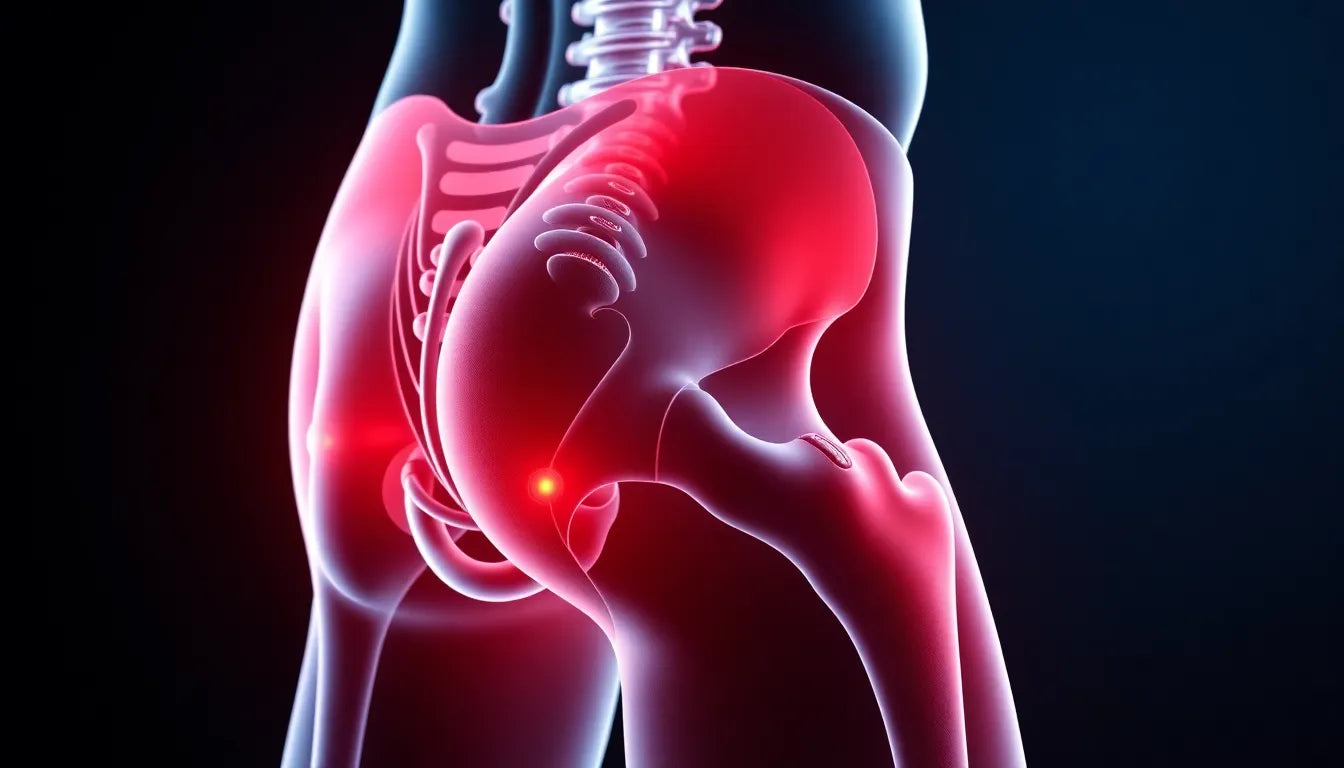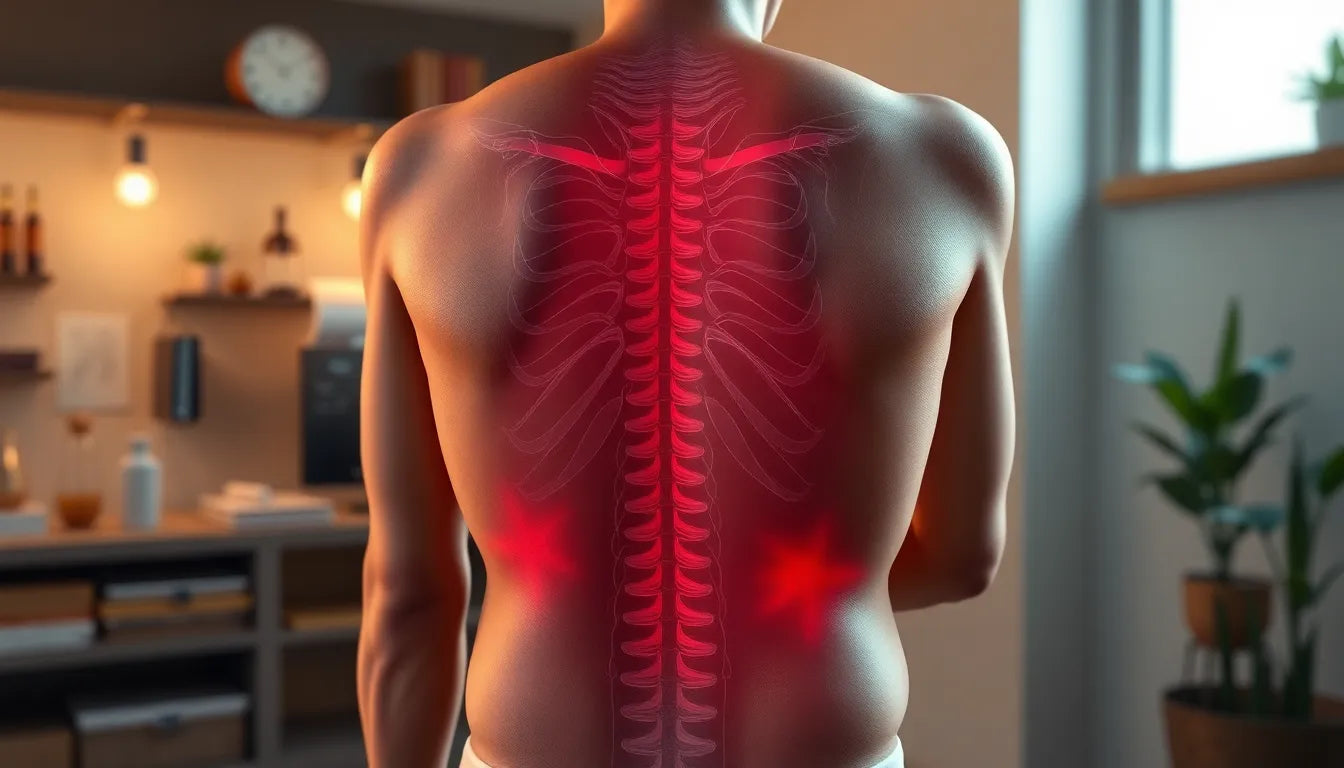Have you ever woken up with a stiff neck, feeling like you slept on a bed of rocks? If so, you're certainly not alone. Neck stiffness is a common complaint in today's fast-paced world, affecting a large number of individuals due to modern lifestyle habits. From spending long hours hunched over computers to the everyday stresses of life, our necks bear the brunt of our daily activities, often resulting in discomfort and limited mobility.
understanding neck stiffness and its impact
Neck stiffness is characterized by a sensation of tightness or rigidity in the neck muscles, making it difficult to move the head freely. This condition can significantly impact daily life, causing discomfort and even pain that hinders routine activities. While often seen as a minor inconvenience, persistent neck stiffness can be a warning sign of more serious underlying health issues that require attention.
For many, neck stiffness is a temporary issue that resolves on its own. However, when it becomes a recurring problem, it can affect your overall quality of life. Tasks such as driving, working at a computer, or even enjoying leisure activities can become challenging. It's essential to address these symptoms early to prevent them from escalating into more severe conditions.
aim of this post
The purpose of this post is to equip you with simple yet effective lifestyle changes to alleviate neck stiffness. By focusing on non-invasive, practical solutions, we aim to help you manage and reduce the discomfort associated with this common issue. Whether you're dealing with occasional stiffness or chronic discomfort, these strategies are designed to fit seamlessly into your daily routine, promoting better neck health and overall well-being.
In the following sections, we will delve deeper into the causes and symptoms of neck stiffness, offering insights into how you can make small adjustments in your lifestyle to achieve significant relief. From ergonomic adjustments to stress management techniques, these tips will empower you to take control of your neck health without the need for invasive treatments or medications.
common causes of neck stiffness
Understanding the root causes of neck stiffness is crucial in addressing and preventing this discomfort. One of the primary culprits is muscle strain, often resulting from overuse or maintaining poor posture for extended periods. This is particularly common in individuals who spend long hours in front of computers or frequently use mobile devices, leading to the notorious "tech neck." Additionally, injuries from accidents or sports can cause sudden stiffness, while stress and tension can lead to chronic muscle tightness in the neck area.
Sleeping in awkward positions is another frequent cause of neck stiffness, as it can strain the muscles and ligaments. While these are the most common causes, it's essential to be aware of more serious conditions that could manifest as neck stiffness. Although less common, issues such as meningitis, cervical herniated discs, and osteoarthritis can also lead to persistent neck stiffness, requiring medical evaluation and treatment.
recognizing symptoms and when to seek help
Neck stiffness can present with a range of symptoms, from mild discomfort to severe pain. It often includes difficulty moving the neck, headaches, and sometimes pain that radiates to the shoulders or arms. While occasional stiffness is typically not a cause for alarm, it's crucial to recognize when it might indicate a more serious condition.
Seek medical attention if you experience persistent pain that does not improve with home care, or if stiffness is accompanied by symptoms such as fever, numbness, or weakness in the arms. These could be signs of a more serious underlying health issue that requires professional evaluation.
lifestyle changes and home remedies for relief
Implementing simple lifestyle changes can significantly alleviate neck stiffness and improve overall neck health. One of the most effective adjustments is creating an ergonomic workspace. Ensuring that your chair is at the correct height, your monitor is at eye level, and your keyboard is positioned comfortably can prevent strain on your neck muscles. Regular breaks to stretch and move around are also beneficial.

Women's Posture Shirt™ - Black
Patented shirt to improve posture, relieve neck and upper back pain, and support daily activities.
Incorporating stretching and exercises into your daily routine can help relieve tension and improve flexibility. Simple neck exercises, such as gentle head tilts and rotations, can be effective. Additionally, mindfulness and stress management techniques, like meditation and deep breathing, can reduce stress-induced muscle tension.
the importance of sleep hygiene
Good sleep hygiene plays a crucial role in preventing neck stiffness. Choosing the right pillow that supports the natural curve of your neck and sleeping in positions that maintain proper alignment are key. Avoiding sleeping on your stomach can also help, as it often leads to awkward neck positions.
home treatment options to consider
For immediate relief, applying warm or cold packs to the affected area can help reduce inflammation and alleviate pain. Over-the-counter pain relievers may also be used, but it is important to use them cautiously and not rely on them for prolonged periods.
If home remedies do not provide sufficient relief, consider seeking professional treatments such as physical therapy, which can offer targeted exercises and techniques to improve neck function and reduce stiffness. In some cases, healthcare providers might suggest other interventions, such as massage therapy or chiropractic care, to address persistent issues.
By understanding the causes and symptoms of neck stiffness and implementing these lifestyle changes and home remedies, you can effectively manage and alleviate discomfort. These strategies not only provide immediate relief but also promote long-term neck health, allowing you to enjoy daily activities without the burden of pain and stiffness.
benefits of lifestyle changes for neck stiffness
Adopting simple lifestyle changes can lead to significant improvements in managing neck stiffness. By integrating ergonomic practices and regular exercise into your daily routine, you can reduce both the frequency and intensity of neck stiffness episodes. These adjustments not only provide immediate relief but also contribute to long-term neck health, allowing you to engage in daily activities with greater comfort and flexibility.

Men's Posture Shirt™ - Black
Patented shirt to activate muscles and relieve tension for better neck and upper back posture and comfort.
Ergonomic adjustments, such as setting up a proper workspace, ensure that your neck is not subjected to unnecessary strain. Regular stretching and exercises help maintain flexibility and prevent muscle tightness. Additionally, mindfulness techniques, like meditation, can alleviate stress, a common contributor to neck stiffness. Together, these strategies create a holistic approach to managing neck discomfort effectively.
the role of ergonomic aids in managing neck stiffness
While lifestyle changes form the foundation of managing neck stiffness, ergonomic aids can offer additional support. Products designed to enhance ergonomic comfort, such as those offered by companies like Anodyne, can complement your efforts to alleviate neck stiffness. These aids, ranging from ergonomic chairs to specially designed pillows, provide targeted support that helps maintain proper posture and reduce strain on the neck muscles.
Ergonomic products work in tandem with lifestyle adjustments, providing a comprehensive approach to managing neck stiffness. By incorporating these aids into your daily routine, you can enhance the effectiveness of your efforts to prevent and relieve neck discomfort, ultimately leading to a more comfortable and productive life.
frequently asked questions
What are the most common causes of neck stiffness?
Muscle strain, poor posture, and stress are among the most common causes of neck stiffness. These factors can lead to muscle tightness and discomfort, often exacerbated by prolonged periods of sitting or using electronic devices.
How can I prevent neck stiffness while working at a desk?
To prevent neck stiffness while working at a desk, maintain good posture by keeping your back straight and shoulders relaxed. Ensure your computer monitor is at eye level and your chair supports your lower back. Take regular breaks to stretch and move around to prevent muscle strain.
When should I see a doctor for neck stiffness?
If you experience persistent neck stiffness that does not improve with home care, or if it is accompanied by symptoms such as fever, numbness, or weakness in the arms, it is advisable to seek medical attention. These could be signs of a more serious underlying condition.
Are there specific exercises to help with neck stiffness?
Yes, there are simple exercises that can help alleviate neck stiffness. Gentle stretches, such as tilting your head side to side and rotating your neck, can relieve tension. Incorporating these exercises into your daily routine can improve flexibility and reduce discomfort.
Can lifestyle changes really make a difference?
Absolutely. Lifestyle changes can have a significant impact on reducing neck stiffness. By adopting ergonomic practices, incorporating regular exercise, and managing stress, you can effectively alleviate discomfort and promote better neck health over time.
Kilder
- Spine-health. "When Is a Stiff Neck Serious?"
- Spine-health. "Stiff Neck Causes, Symptoms, and Treatment."
- Medical News Today. "What Causes a Stiff Neck?"
- OIB Orthopedics. "Stiff Neck: Causes and Prevention."
- Mayo Clinic. "Neck Pain: Symptoms and Causes."
- Cleveland Clinic. "Neck Pain: Causes and When to See a Doctor."
- NHS. "Neck Pain and Stiff Neck."
























